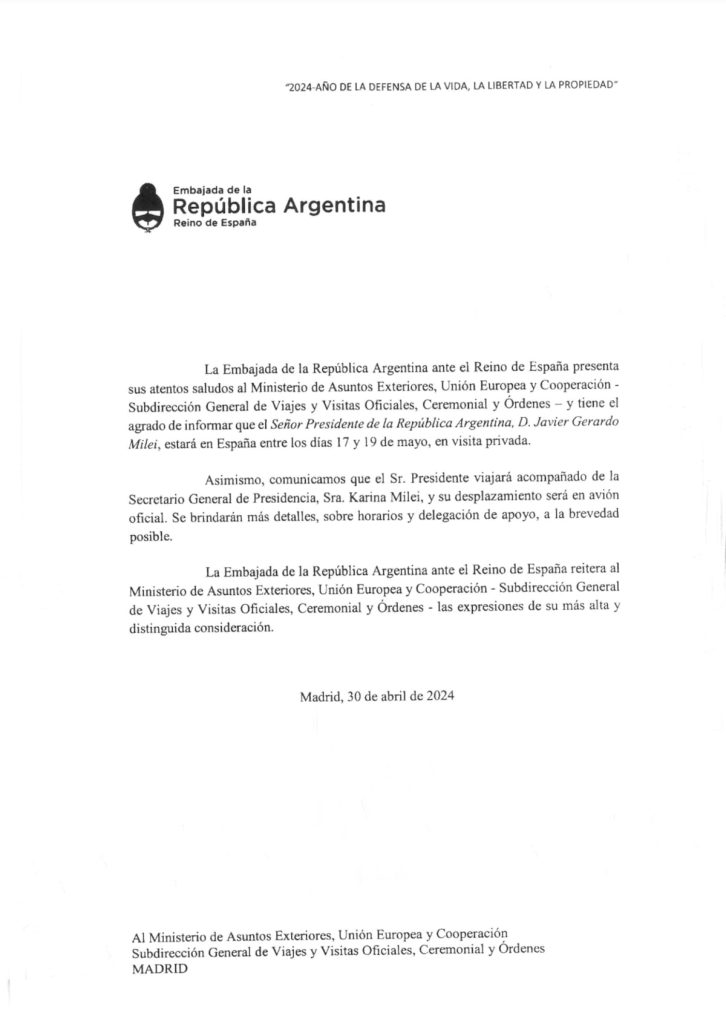The Argentine Embassy in Madrid informed the Spanish government on April 30th about the imminent private visit of President Javier Milei through a letter. The letter, sent to the Ministry of Foreign Affairs, the European Union, and Cooperation, provided details of the trip, such as the use of a private plane and the company of his sister, Karina Milei. The key point emphasized in the letter was that it was a private visit. Milei’s trip to Spain from May 17th to 19th was characterized by insults towards the Spanish government, particularly Pedro Sánchez and his wife, Begoña Gómez, whom he called corrupt during a Vox rally.
The Argentine government insists that Milei’s trip, where he did not have any meetings with Spanish authorities, was official and therefore all expenses were covered by the State. Sources from the Casa Rosada claim that the sending of the letter was “a mistake by the Embassy.” This is the document obtained by EL PAÍS. The decision to classify the visit as private or official has led to confusion and controversy, with some arguing that Milei should have met with Spanish officials as a diplomatic courtesy.
Milei’s visit to Spain was met with criticism due to his derogatory remarks towards the Spanish government. The Argentine Embassy in Madrid has faced backlash for their involvement in the communication of Milei’s visit and the confusion surrounding its classification. Some critics argue that Milei’s behavior reflects poorly on Argentina’s international image, while others defend his right to freedom of speech.
The controversy surrounding Milei’s visit to Spain highlights the delicate balance between diplomatic relations and individual freedom of expression. The Argentine government’s insistence on categorizing the trip as official despite Milei’s lack of interaction with Spanish authorities raises questions about the purpose and implications of such visits. The incident serves as a reminder of the importance of clear communication between diplomatic entities and the potential consequences of political figures’ public statements while abroad.
Overall, Milei’s visit to Spain sparked debate and raised concerns about the role of diplomacy in international relations. While the Argentine government attempted to clarify the nature of the visit, the controversy surrounding Milei’s comments and the embassy’s communication of the trip exposed tensions between political ideologies and diplomatic protocol. As the situation unfolds, it remains to be seen how the incident will impact Argentina’s relations with Spain and the broader implications for diplomatic practices in the future.














